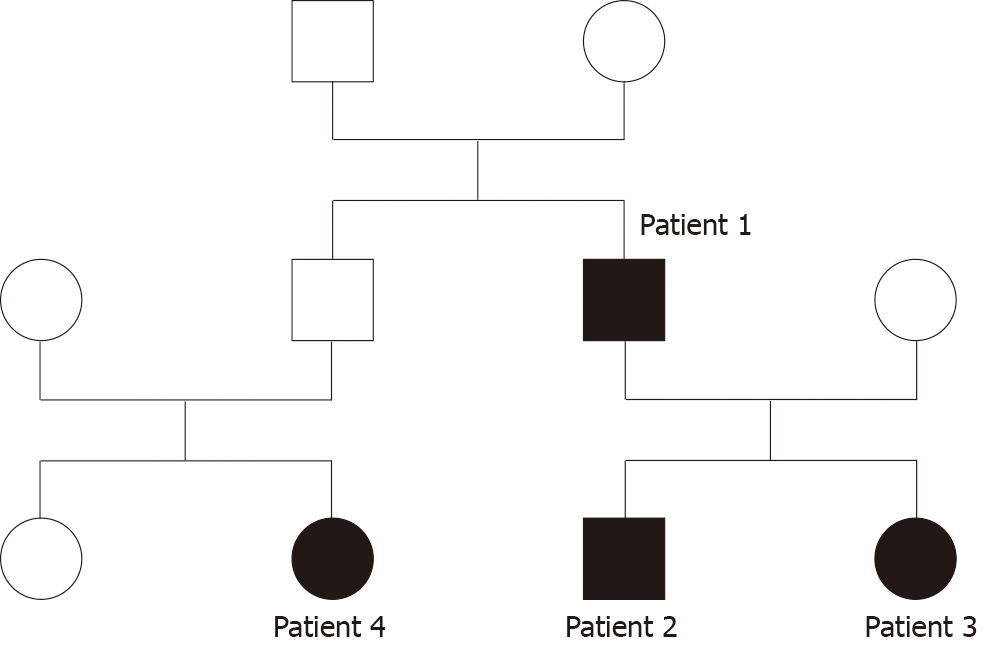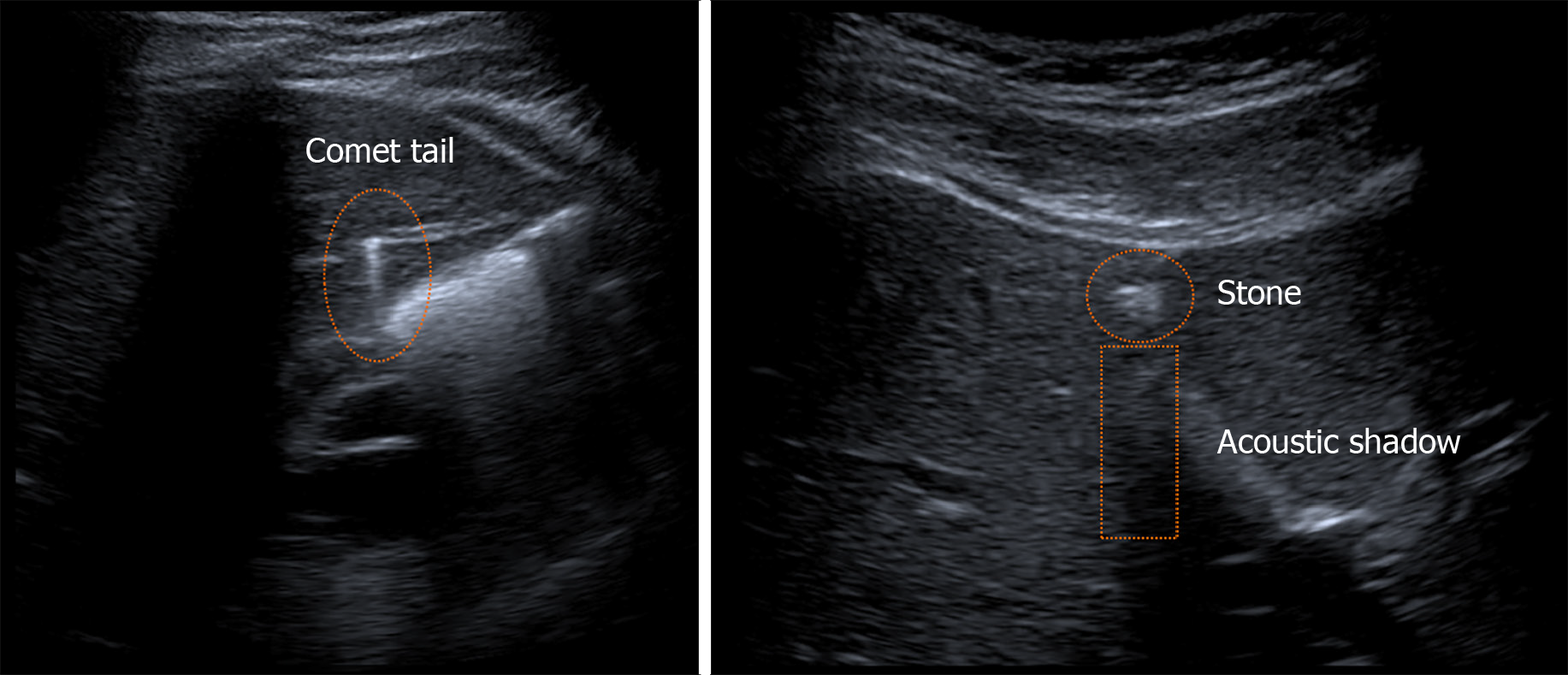Copyright
©The Author(s) 2020.
World J Hepatol. Jun 27, 2020; 12(6): 312-322
Published online Jun 27, 2020. doi: 10.4254/wjh.v12.i6.312
Published online Jun 27, 2020. doi: 10.4254/wjh.v12.i6.312
Figure 1 Family tree of four patients with low phospholipid-associated cholelithiasis syndrome.
This family tree represents four patients with low phospholipid-associated cholelithiasis syndrome. Circles and squares indicate females and males, respectively. Clear symbols indicate unaffected individuals. Black symbols indicate affected individuals.
Figure 2 Ultrasound images of intrahepatic bile duct findings.
Images courtesy of Dr. Karila-Cohen, Department of Radiology, AP-HP Bichat University Hospital, Paris 75018, France. This figure presents some of the intrahepatic bile duct findings detected via ultrasound imaging in our study. On the left: a comet-tail artifact. On the right: a stone and an acoustic shadow. These unpublished images are owned and were provided by Dr. Karila-Cohen.
- Citation: Gille N, Karila-Cohen P, Goujon G, Konstantinou D, Rekik S, Bécheur H, Pelletier AL. Low phospholipid-associated cholelithiasis syndrome: A rare cause of acute pancreatitis that should not be neglected. World J Hepatol 2020; 12(6): 312-322
- URL: https://www.wjgnet.com/1948-5182/full/v12/i6/312.htm
- DOI: https://dx.doi.org/10.4254/wjh.v12.i6.312










